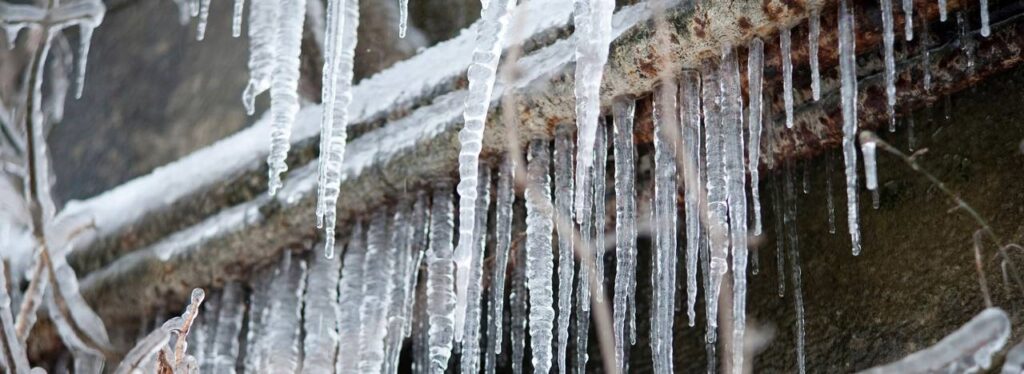What're your insights and beliefs about Prevent Frozen Pipes ?

Winter can damage your plumbing, specifically by freezing pipes. Below's exactly how to prevent it from occurring and what to do if it does.
Intro
As temperatures decrease, the risk of icy pipes rises, potentially resulting in pricey repairs and water damage. Comprehending exactly how to prevent frozen pipes is critical for home owners in chilly climates.
Recognizing Icy Pipes
What creates pipes to ice up?
Pipelines ice up when exposed to temperature levels below 32 ° F (0 ° C) for extended durations. As water inside the pipes freezes, it expands, putting pressure on the pipeline wall surfaces and possibly creating them to break.
Threats and problems
Icy pipes can cause water system disturbances, residential or commercial property damages, and expensive repairs. Ruptured pipes can flooding homes and create extensive architectural damage.
Signs of Frozen Pipes
Recognizing icy pipelines early can stop them from breaking.
Just how to determine frozen pipes
Look for decreased water circulation from taps, unusual smells or noises from pipelines, and visible frost on subjected pipes.
Prevention Tips
Insulating prone pipelines
Wrap pipes in insulation sleeves or make use of warmth tape to secure them from freezing temperature levels. Concentrate on pipes in unheated or exterior areas of the home.
Heating techniques
Maintain indoor rooms effectively heated, especially areas with pipes. Open up cabinet doors to allow warm air to circulate around pipelines under sinks.
Safeguarding Outside Pipes
Yard hose pipes and exterior faucets
Separate and drain garden tubes before winter. Mount frost-proof spigots or cover outdoor taps with shielded caps.
What to Do If Your Pipes Freeze
Immediate actions to take
If you suspect icy pipes, keep faucets open to relieve pressure as the ice melts. Make use of a hairdryer or towels taken in hot water to thaw pipelines slowly.
Long-Term Solutions
Architectural modifications
Consider rerouting pipes far from exterior wall surfaces or unheated locations. Include extra insulation to attics, cellars, and crawl spaces.
Upgrading insulation
Invest in high-grade insulation for pipes, attics, and wall surfaces. Proper insulation aids maintain consistent temperature levels and minimizes the risk of frozen pipes.
Verdict
Protecting against icy pipelines needs positive procedures and fast responses. By comprehending the causes, indications, and preventive measures, property owners can safeguard their pipes throughout winter.
Helpful Tips to Prevent Frozen Pipes this Winter
UNDERSTANDING THE BASICS: WHY PIPES FREEZE AND WHY IT’S A PROBLEM
Water freezing inside pipes is common during the winter months, but understanding why pipes freeze, and the potential problems it can cause is crucial in preventing such incidents. This section will delve into the basics of why pipes freeze and the associated problems that may arise.
THE SCIENCE BEHIND FROZEN PIPES
When water reaches freezing temperatures, it undergoes a physical transformation and solidifies into ice. This expansion of water as it freezes is the primary reason pipes can burst. As the water inside the pipe freezes, it expands, creating immense pressure on the walls. If the pressure becomes too great, the pipe can crack or rupture, leading to leaks and water damage.
FACTORS THAT CONTRIBUTE TO PIPE FREEZING
- Low Temperatures: Extremely cold weather, especially below freezing, increases the risk of pipes freezing.
- Uninsulated or Poorly Insulated Pipes: Pipes located in unheated areas, such as basements, crawl spaces, or attics, are more prone to freezing. Insufficient insulation or lack of insulation altogether exacerbates the problem.
- Exterior Wall Exposure: Pipes running along exterior walls are susceptible to freezing as they encounter colder temperatures outside.
- Lack of Heating or Temperature Regulation: Inadequate heating or inconsistent temperature control in your home can contribute to frozen pipes.
PROBLEMS CAUSED BY FROZEN PIPES
WHY CERTAIN PIPES ARE MORE PRONE TO FREEZING
- Pipe Bursting: As mentioned earlier, the expansion of water as it freezes can cause pipes to burst, resulting in significant water damage.
- Water Damage: When pipes burst, it can lead to flooding and water damage to your property, including walls, ceilings, flooring, and personal belongings.
- Structural Damage: Prolonged exposure to water from burst pipes can compromise the structural integrity of your home, leading to costly repairs.
- Mold and Mildew Growth: Excess moisture from water damage can create a favorable environment for mold and mildew growth, posing health risks to occupants.
- Disrupted Water Supply: Frozen pipes can also result in a complete or partial loss of water supply until the issue is resolved.
https://busybusy.com/blog/helpful-tips-to-prevent-frozen-pipes-this-winter/
- Location: Pipes located in unheated or poorly insulated areas, such as basements, crawl spaces, attics, or exterior walls, are at higher risk of freezing.
- Exterior Pipes: Outdoor pipes, such as those used for irrigation or exposed plumbing, are particularly vulnerable to freezing as they are directly exposed to the elements.
- Supply Lines: Pipes that carry water from the main water supply into your home, including the main water line, are critical to protect as freezing in these lines can affect your entire plumbing system.
- Underground Pipes: Pipes buried underground, such as those connected to sprinkler systems or outdoor faucets, can be susceptible to freezing if not properly insulated.

As a devoted person who reads on Preventing and dealing with frozen pipes, I figured sharing that blog post was smart. If you liked our page if you please don't forget to share it. Bless you for being here. Return soon.
Contact
Comments on “Important Advice for Avoiding Frozen Plumbing in Cold Weather Conditions”